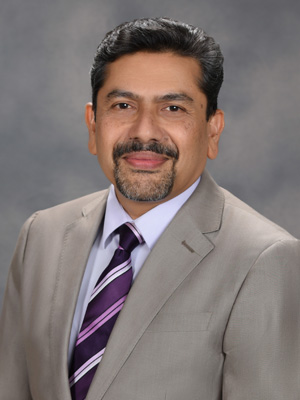

Chirayath is an associate professor in the Department of Nuclear Engineering, director of the Texas A&M Center for Nuclear Security Science and Policy Initiatives and the project’s principal investigator at Texas A&M University. He is focusing on nuclear forensics methodology development and testing and verification — including neutronics simulations, radiochemical experimental efforts and nondestructive and destructive assay of irradiated uranium and plutonium samples.
The nuclear forensics methodology development involves machine learning and maximum likelihood statistical techniques. This methodology will provide demonstratable proof for U.S. government agencies to identify the origins of plutonium produced in foreign nuclear fuel cycles if such material is subjected to experimental analysis.
The consortium is funded by a five-year, $25-million award from the U.S. Department of Energy’s National Nuclear Security Administration, with the focus on developing new methods to detect and deter nuclear proliferation activities and to educate the next generation of nuclear security professionals.
Under the direction of Dr. Sara Pozzi of the University of Michigan, the consortium is composed of 14 universities and 13 national laboratories. The overarching goal of the MTV is to significantly advance the national capability to detect and characterize foreign nuclear weapons development programs and detect activities not in compliance with current treaty obligations.
The MTV plans to meet this goal by conducting research focused on three technical thrust areas: fundamentals of nuclear particle physics; signals and source terms for nuclear nonproliferation; and nuclear explosion monitoring. Cross-cutting areas of MTV include modeling and simulation, nuclear policy and education and outreach.
Chirayath’s research team mainly contributes to the MTV thrust area of signals and source terms for nuclear nonproliferation in addition to the cross-cutting areas of modeling and simulation and education and outreach.
The consortium project at Texas A&M supports three nuclear engineering doctoral students and engages four nuclear engineering undergraduate students in research and collaborates with Lawrence Livermore National Laboratory and Sandia National Laboratories in this research endeavor. Students are also offered internship opportunities to expand training and research activities at national laboratories.
Through their close collaboration with the national laboratories, the activities at Texas A&M are supporting the U.S. government’s need to grow the nuclear forensics workforce in the U.S. through training job-ready experts in the field.
Along with the University of Michigan and Texas A&M, the consortium includes Columbia University; the Georgia Institute of Technology; the Massachusetts Institute of Technology; Penn State University; Princeton University; the University of California, Berkeley; the University of Florida; the University of Hawaii; the University of New Mexico; the University of Tennessee, Knoxville; the University of Wisconsin; and Virginia Polytechnic Institute and State University.